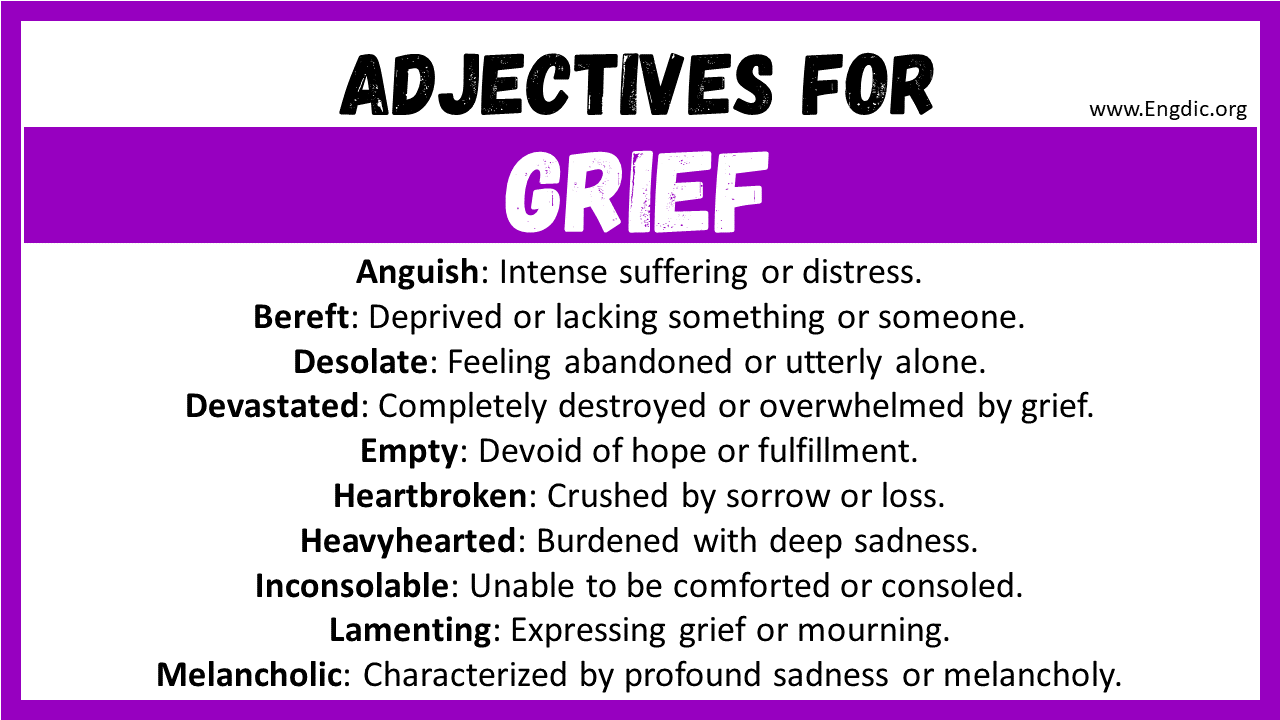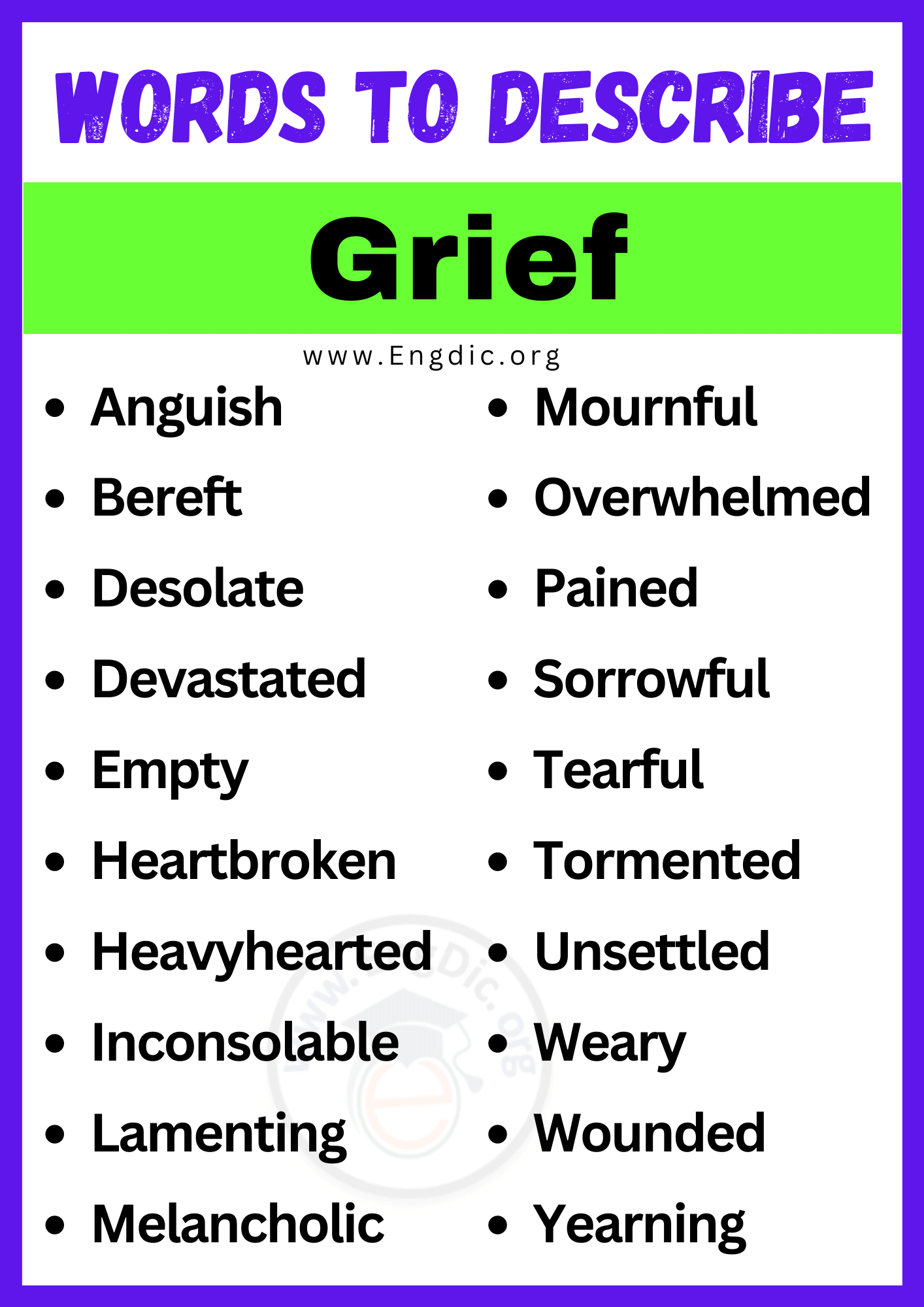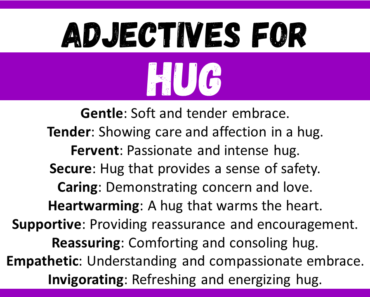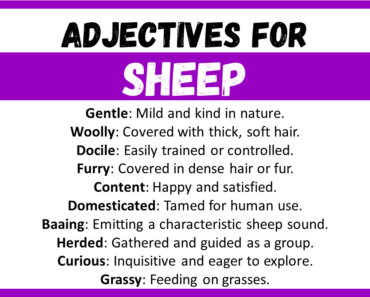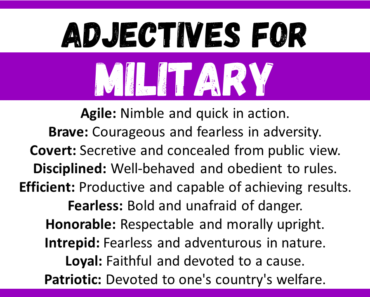Grief, simply put, is the profound sorrow we experience when we lose someone or something dear to us. It is a universal human emotion that encompasses a complex range of feelings and reactions. When grappling with grief, we often struggle to find the right words to express the depth of our pain and longing. In this blog post, we will explore a selection of poignant words that beautifully capture the essence of grief, helping us navigate the intricate landscape of our emotions and find solace in understanding and expression.
Adjectives for Grief
Here are the 20 Most Popular adjectives for grief :
- Anguish
- Bereft
- Desolate
- Devastated
- Empty
- Heartbroken
- Heavyhearted
- Inconsolable
- Lamenting
- Melancholic
- Mournful
- Overwhelmed
- Pained
- Sorrowful
- Tearful
- Tormented
- Unsettled
- Weary
- Wounded
- Yearning
Words to Describe Grief with Meanings
- Anguish: Intense suffering or distress.
- Bereft: Deprived or lacking something or someone.
- Desolate: Feeling abandoned or utterly alone.
- Devastated: Completely destroyed or overwhelmed by grief.
- Empty: Devoid of hope or fulfillment.
- Heartbroken: Crushed by sorrow or loss.
- Heavyhearted: Burdened with deep sadness.
- Inconsolable: Unable to be comforted or consoled.
- Lamenting: Expressing grief or mourning.
- Melancholic: Characterized by profound sadness or melancholy.
- Mournful: Filled with sorrow or mourning.
- Overwhelmed: Overcome or overpowered by grief.
- Pained: Suffering or experiencing emotional distress.
- Sorrowful: Full of sadness or grief.
- Tearful: Filled with tears or weeping.
- Tormented: Tortured or haunted by grief.
- Unsettled: Feeling disturbed or unsettled emotionally.
- Weary: Exhausted or fatigued by grief.
- Wounded: Deeply hurt or injured emotionally.
- Yearning: Longing or craving for what has been lost.
Example Sentences for Grief Adjectives
- The news of her sudden death filled me with anguish.
- After the breakup, he felt bereft of joy.
- The abandoned house looked eerie and desolate.
- She was devastated by the loss of her beloved pet.
- The empty chair at the table served as a constant reminder of his heartbroken state.
- His face reflected a heavyhearted sorrow that couldn’t be lifted.
- She was inconsolable after her best friend moved away.
- The funeral was a lamenting occasion filled with tears.
- He retreated into melancholic solitude after the tragic event.
- The sound of the bell was hauntingly mournful.
- Overwhelmed by grief, she couldn’t stop crying.
- His pained expression revealed the depth of his sorrow.
- The cemetery was a sorrowful place, filled with weeping.
- She couldn’t control her tearful outbursts during the memorial.
- Memories of the past tormented him relentlessly.
- The loss of her parents left her feeling unsettled and alone.
- Grief had left her weary and unable to cope.
- He carried the wounded feeling of loss in his heart.
- His yearning for his late wife never faded.
- She felt a deep emptiness that couldn’t be filled.
Explore More Words:
FAQ’s
How to describe grief in writing?
Describing grief in writing involves capturing the profound sorrow, anguish, and emotional turmoil experienced when mourning the loss of someone or something dear, using evocative language and imagery.
What is the adverb for grief?
The adverb form of “grief” is “grief-stricken,” which describes the state of being deeply affected by grief or overwhelming sadness.
Is grieving a verb or adjective?
“Grieving” is a verb. It represents the action of experiencing or going through the process of grief, typically in response to a significant loss.
